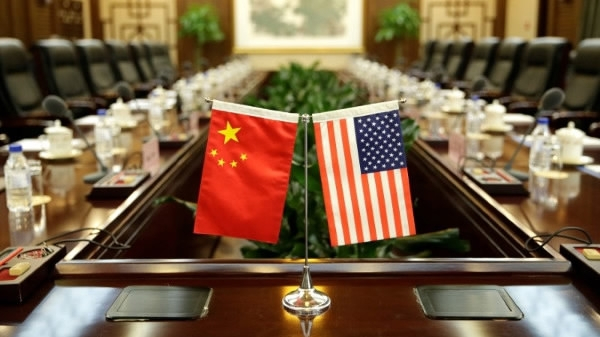02:35

Tech transfer has been a sore point in the China-U.S. trade talks, but why is this issue hard to resolve, and must China tackle it?
Tech transfer is a neutral word by nature. It is widely practiced in the world of business, especially in the industrial sector. It is different from forced tech transfer. The much-cheered phase one China-U.S. trade deal touched on this thorny issue that's long been a major U.S. government complaint against China – the alleged forced tech transfer from American firms in exchange for access to the Chinese market.
Wang Dan, an economist at the Economist Intelligence Unit, said the evidence of forced tech transfer by China is quite weak. But it doesn't mean there's nothing else for China to improve its market condition.
"What I think would be effective for foreign investors is actually being treated equally as domestic private businesses," said Wang.
She went on to say that if China can level the playing field on equal treatment and be more transparent on how joint ventures are formed and how the tech would be transferred to local companies, global investors might be more confident about increasing their presence in China.
Technologies have been transferred in China through joint ventures and business contracts, according to Chinese government statements. Beijing dismissed allegations of government strong-arming as "utterly unfounded," describing any tech transfer cases as "voluntary" and "based on market principles."
So what are the legitimate ways for tech transfers? Paying for patents and licenses. An IMF report says China is among the world's biggest spenders on patents and licenses. And China's forex watchdog says China paid 35.8 billion U.S. dollars in 2018 for foreign intellectual property rights, up 24 percent from a year ago. The payments were mainly in sectors including computing, telecommunications, auto manufacturing, shipbuilding and aviation.
Experts say the text addressing the issue of technology transfer in the phase one trade deal is not too different from what China had already signed up to when it joined the World Trade Organization in 2001. The phase one trade deal said both sides are forbidden from adopting administrative means, such as licensing requirements to pressure technology transfer from the other side. The deal also bans acquisitions in foreign technologies for both sides in areas that "create distortion."
However, China needs some extra push to truly have its own technology. Wang said China's tech transfer policy for the industrial sector is not wrong but not sustainable.
"Essentially, we have to rely on ourselves to develop the indigenous innovation. Tech transfer is only meaningful for, in fact, the mid-level supply chain," said Wang.

Overall, the phase one trade deal does provide value for the China-U.S. trade, as it could help resolve technology transfer disputes in the future.
The U.S. Treasury Secretary Steven Mnuchin told CNBC that the "first step" regarding a trade deal with China is "really focusing on enforcement." Analysts believe that there will be additional tariff rollbacks in phase two. But the first deal "gives China a big incentive to get back to the table and agree to the additional issues that are still unresolved," said Mnuchin.
He added that, "China has agreed to put together very significant laws to change rules and regulations and have made very strong commitments to our companies that there will not be forced technology going forward."
China's English newspaper China Daily said in an opinion piece that it is critically important to make a clear distinction between commercial deals between foreign companies and their Chinese business partners and the acts of the Chinese government. The newspaper said that while commercial contracts are based on agreements between foreign and Chinese enterprises, "forced transfer of technology" accusations are related to the Chinese government. That explains why Chinese officials have been saying that it is ridiculous to regard the complaints against Chinese companies as "forced technology transfers."
As for joint ventures in China, foreign businesses are free to negotiate the terms of the contract with their Chinese counterparts, which makes it hard to declare any forced technology transfers as either party can walk away if it is not happy with the terms.
A market consensus in China that justifies tech transfer practices in the country is that many powerful companies in China have had everything they need for expansion – capital, sales network, clients, supplier and trained workers. New technology is the only thing many of them still lack.
Meanwhile, in terms of market access, China has been promising more openness. If China can live up to them, it is already one step ahead of countries like Germany. The German government scrutinizes – and sometimes blocks – purchases of 10 percent or more stakes by non-European companies in German companies in sectors such as the energy, water, food supply, telecommunications, defense, finance and transportation. New measures are being taken to allow foreign companies easier access to the Chinese market in oil and gas and finance.
But the question is how China will implement the measures without any reluctance, as that's going to lay the foundation for the second phase of trade negotiations between the two largest economies in the world.